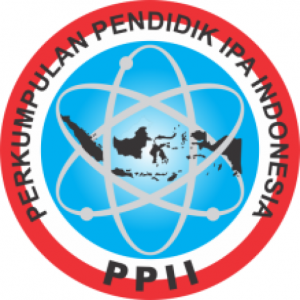Hormonal Contraception as a Meningioma Risk Factor: a Literature Review
Authors
Annisa Risqi Amaliya , Herpan Syafii Harahap , Rohadi Muhammad RosyidiDOI:
10.29303/jbt.v24i4.7627Published:
2024-10-16Issue:
Vol. 24 No. 4 (2024): Oktober - DesemberKeywords:
Contraception, hormonal, meningioma.Articles
Downloads
How to Cite
Downloads
Metrics
Abstract
Hormonal contraception is the most widely used contraceptive method in Indonesia, this is one of the risk factors for meningioma. Meningioma is the most common intracranial tumor. Risk factors for meningioma include a history of trauma, genetic history, hormonal exposure, history of menarche. in this study, the focus is on discussing literature on hormonal contraceptive exposure. This paper is a literature review. The method used in this literature review is to search and review various literature sourced from online databases such as PubMed, Google Scholar, and Proquest. The keywords used in the literature search process include “hormonal”, “contraception”, “progesterone” “meningioma”. The use of hormonal contraceptives has been shown to increase the risk of meningioma, which is attributed to the progesterone receptors present in the normal meningens and the presence of the same progesterone receptors in meningiomas. The results of older studies have different results from recent studies, these inconsistencies may be associated with other variables such as duration, dose, and consistency in use, differences in the type of contraceptive use, current or previous use and other risk factors, further research needs to examine these variables and the underlying hormonal mechanisms to obtain more accurate results.
References
Agopiantz, M., Carnot, M., Denis, C., Martin, E., & Gauchotte, G. (2023). Hormone Receptor Expression in Meningiomas: A Systematic Review. Cancers, 15(3). https://doi.org/10.3390/cancers15030980
Alruwaili, A. A., & Jesus, O. De. (2023). Meningioma. In National Institutes of Health.
Apriyani, V. K. (2021). Faktor risiko meningioma orbitokranial pada wanita pengguna kontrasepsi hormonal.
Brunton, L., Chabner, B., & Knollman, B. (2014). The Pharmacological Basis of Therapeutics. In Fundamentals of Antimicrobial Pharmacokinetics and Pharmacodynamics. https://doi.org/10.1007/978-0-387-75613-4_9
Buerki, R. A., Horbinski, C. M., Kruser, T., Horowitz, P. M., James, C. D., & Lukas, R. V. (2020). An overview of meningiomas. An Overview of Meningiomas, 14(January), 3–10. https://doi.org/10.1007/978-3-030-59558-6_1
Christine, R. N., Suparto, A., & Agni, A. N. (2015). Hubungan Pemakaian Kontrasepsi Hormonal Terhadap Risiko Meningioma Orbitokranial Pada Wanita. 9–12. http://etd.repository.ugm.ac.id/penelitian/detail/92362
Cooper, D. B., Patel, P., & Mahdy, H. (2022). Oral Contraceptive Pills - PubMed. https://pubmed.ncbi.nlm.nih.gov/28613632/
Custer, B., Longstreth, J. T., Phillips, L. E., Koepsell, T. D., & Van Belle, G. (2006). Hormonal exposures and the risk of intracranial meningioma in women: A population-based case-control study. BMC Cancer, 6, 1–9. https://doi.org/10.1186/1471-2407-6-152
Daffa, M. N. (2020). GAMBARAN KASUS PASIEN MENINGIOMA.
Dustur, S., Wahyuhadi, J., Utomo, B., Parenrengi, M. A., Bajamal, A. H., & Dwiningsih, S. R. (2022). Relationship Histopathology Grading of Meningioma with the Use of Medroxyprogesterone Acetate (MPA) as A Hormonal Contraceptive. Pharmacognosy Journal, 14, 938–941. https://doi.org/10.5530/pj.2022.14.193
Herowati, D., & Sugiharto, M. (2019). Hubungan Antara Kemampuan Reproduksi, Kepemilikan Anak, Tempat Tinggal, Pendidikan Dan Status Bekerja Pada Wanita Sudah Menikah Dengan Pemakaian Kontrasepsi Hormonal Di Indonesia Tahun 2017. Buletin Penelitian Sistem Kesehatan, 22(2), 91–98. https://doi.org/10.22435/hsr.v22i2.1553
Ichwan, S., Santoso, F., Aman, R. A., Tandian, D., Fachniadin, A., & Nugroho, S. W. (2023). Estrogen and progesterone in meningioma: Bridging the gap of knowledge. Neurology Asia, 28(1), 1–11. https://doi.org/10.54029/2023wxj
Janah, R., Rujito, L., & Wahyono, D. J. (2022). Expressions of Progesterone Receptor of Orbital Meningiomas in Indonesia. Asian Pacific Journal of Cancer Prevention : APJCP, 23(12), 4137–4143. https://doi.org/10.31557/APJCP.2022.23.12.4137
Lumongga, F. (2007). Meninges dan Cerebrospinal Fluid. USU Reporsitory, 1–10. http://repository.usu.ac.id/bitstream/handle/123456789/2044/09E01466.pdf?sequence=1&isAllowed=y
Maggio, I., Franceschi, E., Tosoni, A., Nunno, V. Di, Gatto, L., Lodi, R., & Brandes, A. A. (2021). Meningioma: Not always a benign tumor. A review of advances in the treatment of meningiomas. CNS Oncology, 10(2). https://doi.org/10.2217/cns-2021-0003
Maiuri, F., Mariniello, G., Somma, T., Guadagno, E., Corvino, S., Pagano, S., Orlando, V., & Del Basso De Caro, M. (2020). Meningiomas in Premenopausal Women: Role of the Hormone Related Conditions. Frontiers in Oncology, 10(December), 1–8. https://doi.org/10.3389/fonc.2020.556701
Malueka, R. G., Hartanto, R. A., Setyawan, N. H., Fauzi, D. N. F., Damarjati, K. R., Rismawan, A., Septianastiti, M. A., Wicaksono, A. S., Dananjoyo, K., Basuki, E., Asmedi, A., & Dwianingsih, E. K. (2022). Association of Hormonal Contraception with Meningioma Location in Indonesian Patients. Asian Pacific Journal of Cancer Prevention, 23(3), 1047–1051. https://doi.org/10.31557/APJCP.2022.23.3.1047
Mnango, L., Mwakimonga, A., Ngaiza, A. I., Yahaya, J. J., Vuhahula, E., & Mwakigonja, A. R. (2021). Expression of Progesterone Receptor and Its Association with Clinicopathological Characteristics in Meningiomas: A Cross-Sectional Study. World Neurosurgery: X, 12, 100111. https://doi.org/10.1016/j.wnsx.2021.100111
Pećina-Šlaus, N., Kafka, A., & Lechpammer, M. (2016). Molecular genetics of intracranial meningiomas with emphasis on canonical Wnt signalling. Cancers, 8(7). https://doi.org/10.3390/cancers8070067
Roland, N., Neumann, A., Hoisnard, L., Duranteau, L., Froelich, S., Zureik, M., & Weill, A. (2024). Use of progestogens and the risk of intracranial meningioma: national case-control study. Bmj, 1–13. https://doi.org/10.1136/bmj-2023-078078
Roser, F., Nakamura, M., Bellinzona, M., Rosahl, S. K., Ostertag, H., & Samii, M. (2004). The prognostic value of progesterone receptor status in meningiomas. Journal of Clinical Pathology, 57(10), 1033–1037. https://doi.org/10.1136/jcp.2004.018333
Salles, D., Santino, S. F., Malinverni, A. C. M., & Stávale, J. N. (2021). Meningiomas: A review of general, histopathological, clinical and molecular characteristics. Pathology Research and Practice, 223(March). https://doi.org/10.1016/j.prp.2021.153476
Saraswati, P. A. K. P., Sudiariani, N. K. A., Astika, I. M. D., & Sukarini, N. P. (2022). Meningioma pada akseptor kontrasepsi hormonal: laporan kasus. Intisari Sains Medis, 13(2), 599–603. https://doi.org/10.15562/ism.v13i2.1443
Supartoto, A., Sasongko, M. B., Respatika, D., Mahayana, I. T., Pawiroranu, S., Kusnanto, H., Sakti, D. H., Nurlaila, P. S., Heriyanto, D. S., & Haryana, S. M. (2019). Relationships between neurofibromatosis-2, progesterone receptor expression, the use of exogenous progesterone, and risk of orbitocranial meningioma in females. Frontiers in Oncology, 9(JAN), 1–7. https://doi.org/10.3389/fonc.2018.00651
Teal, S., & Edelman, A. (2021). Contraception Selection, Effectiveness, and Adverse Effects: A Review. Jama, 326(24), 2507–2518. https://doi.org/10.1001/jama.2021.21392
Wahyuhadi, J., Heryani, D., & Basuki, H. (2018). Risk of meningioma associated with exposure of hormonal contraception. A case control study. Majalah Obstetri & Ginekologi, 26(1), 36. https://doi.org/10.20473/mog.v26i12018.36-41
Weill, A., Nguyen, P., Labidi, M., Cadier, B., Passeri, T., Duranteau, L., Bernat, A. L., Yoldjian, I., Fontanel, S., Froelich, S., & Coste, J. (2021). Use of high dose cyproterone acetate and risk of intracranial meningioma in women: Cohort study. The BMJ, 372. https://doi.org/10.1136/bmj.n37
Yang, I. (2012). Family and personal medical history and risk of meningioma. Yearbook of Neurology and Neurosurgery, 2012(6), 186–187. https://doi.org/10.1016/j.yneu.2012.03.005
Yang, X., Liu, F., Zheng, J., Cheng, W., Zhao, C., & Di, J. (2021). Relationship Between Oral Contraceptives and the Risk of Gliomas and Meningiomas: A Dose-Response Meta-Analysis and Systematic Review. World Neurosurgery, 147, e148–e162. https://doi.org/10.1016/j.wneu.2020.11.175
License
Copyright (c) 2024 Annisa Risqi Amaliya, Herpan Syafii Harahap, Rohadi Muhammad Rosyidi

This work is licensed under a Creative Commons Attribution 4.0 International License.

Jurnal Biologi Tropis is licensed under a Creative Commons Attribution 4.0 International License.
The copyright of the received article shall be assigned to the author as the owner of the paper. The intended copyright includes the right to publish the article in various forms (including reprints). The journal maintains the publishing rights to the published articles.
Authors are permitted to disseminate published articles by sharing the link/DOI of the article at the journal. Authors are allowed to use their articles for any legal purposes deemed necessary without written permission from the journal with an acknowledgment of initial publication to this journal.


























